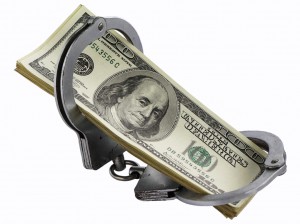
Department of Health and Human Services (HHS) and the Department of Justice (DOJ) teamed up in 2009 to reduce instances of healthcare fraud and abuse in Medicare and Medicaid. In fact, on September 7th, HHS and the DOJ announced that 91 people in eight cities were facing charges for their alleged participation in a variety of Medicare fraud schemes involving nearly $300 million — about $263.6 million in false billings and another $30 million in fraudulent claims. Government Slams Medicaid Fraud…
Commercial Carriers Exposed: Government Slams Medicaid Fraud
But, according to some health plan investigators, federal and state investigators could do a better job of sharing information that could help identify fraud on the commercial side. Commercial carriers will more than likely become easy targets as the federal government focuses on fraud in Medicare and Medicaid.
The National Health Care Anti-Fraud Association (NHCAA) sponsors three meetings a year where health plan representatives from around the country discuss the types of fraud and abuse cases that they are encountering. The goal is to help detect possible schemes with in the commercial carrier world. Furthermore, there is software available that is sophisticated enough that it allows health plans to analyze claims data for outliers and can, in effect, indicate potential fraud and abuse.
But the medical loss ratio (MLR) provision of the healthcare reform law could restrict commercial health insurers and their efforts to identify fraudulent claims before they get paid. The Affordable Care Act classifies fraud and abuse prevention as an administrative expense. However, those expenses can be offset by any money recovered. So why prevent fraud? It seems there is more financial incentive to let the money go and then recover it later.
The HHS/DOJ Health Care Fraud Prevention and Enforcement Action Team (HEAT) is clearly chasing down Medicaid fraud and abuse, leaving the commercial carriers exposed in several ways and for many reasons. Systemic fraud, in which a medical provider might try to justify misrepresentation on claims as being what is best for the patient, are far more difficult to prove while Medicaid cases can be viewed as more straightforward. Further, higher unemployment and more people with no coverage seem to have caused an increase of illegal use of health insurance identification numbers, emerging elaborate fraud schemes, and a spike in violence related to fraudulent activities.
Unfortunately the economy might force otherwise honest people to perform questionable abuses of the system. But it can also encourage people to pay greater attention to where every dollar goes and report potential fraud cases immediately. The following video is an informative clip, showing how all of us can be mindful of fraud and begin to protect ourselves: https://www.wisconsinsmp.org/2011/02/video-avoiding-medicare-and-medicaid-fraud-and-abuse/





